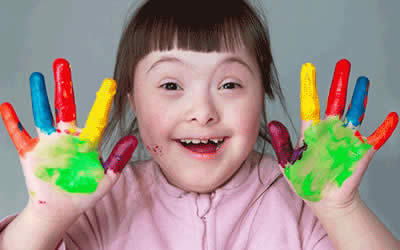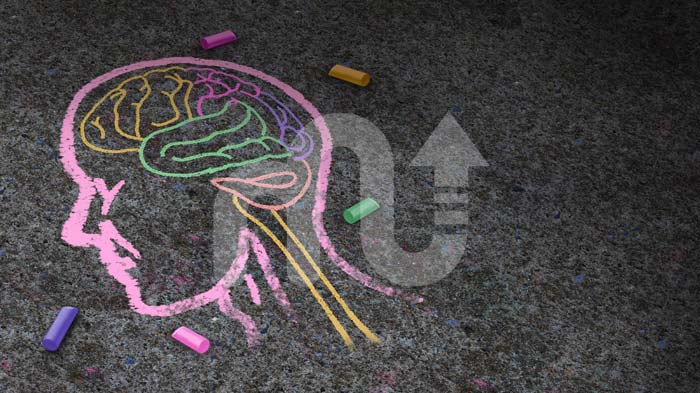CAUSES, SYMPTOMS AND TREATMENT OF INTELLECTUAL DISABILITY IN CHILDREN
It should not be forgotten that the mental retardation is not the inability of a person on something, it is the situation of having low intelligence quotient. An IQ test can be used to clarify the situation for children who show symptoms of mental retardation. The mental retardation test is only a test that can be done by qualified experts in this area.
RECOMMENDED ARTICLE: Intelligence Test – What is IQ Test, How to Apply?
What is Dull-Normal Intelligence?
There is also the concept of dull-normal intelligence. When intellectual disability contains all average IQ, low average, and borderline intelligence levels; Dull-Normal intelligence refers to having barely ‘below average’ mental abilities. It means that the learning and training potential of children who have dull-normal intelligence is higher than the children with intellectual disability.
So, what are the causes of intellectual disability?
CAUSES OF INTELLECTUAL DISABILITY
The causes of intellectual disability are often grouped according to the time of their occurrence.
1- Prenatal Causes for Intellectual Disability:
As it can be understood by the name, prenatal causes are the factors that cause intellectual disability in the mother's womb. Inheritance is the major cause for intellectual disability; chromosomal disorders such as Down syndrome or metabolic disorders can also cause intellectual disability.
Drinking alcohol, taking drugs during pregnancy or malnutrition may not affect some children, but for some babies, it can cause intellectual disability. Moreover, infections during pregnancy can also cause damage to the child's brain functions.
It is not possible to test intellectual disability during pregnancy. However, chromosomal anomalies can be identified by prenatal screening tests- which can be done before pregnancy-. This test is also called are also called triple screening test. These are the tests that are applied to determine the diseases (e.g. Down syndrome) associated with intellectual disability.
2- Causes for Intellectual Disability During Birth:
Premature labor (premature birth) and postmature birth can cause intellectual disability.
Infants who do not get enough oxygen during birth or infants who are caught in the neck by their umbilical cord can have an intellectual disability as a result of brain damage caused during this time.
3- Post-Birth Causes for Intellectual Disability:
Several infant/child diseases can damage the brain, and as a result of this damage, mental deficiencies can occur. In the old times, children with high fever were sometimes unable to respond timely and correctly because of insufficient facilities Although this situation is much less common today, we can still see some people who are mentally disabled because they suffered a seizure during childhood. Therefore we have to keep in mind that secret seizures can also cause brain damage in children.
Moreover; severe psychological problems, head trauma, hepatitis, pediatric infectious diseases and psycho-social factors can also cause intellectual disability.
Remember: All mentioned above; prenatal, birth and post-birth causes of intellectual disability are only probabilities. It should not be understood that intelligence problems will occur in every child who experiences such problems.
SYMPTOMS OF INTELLECTUAL DISABILITY IN CHILDREN
Some symptoms of intellectual disability can be seen on physical appearance. For example, Children with Down syndrome have differences in their facial features and people with Down syndrome look very similar to each other. Such physical differences may indicate an intellectual disability.
Yet, one of the strongest signs is that the children being left behind by their peers. Of course, this is nothing like comparing their skills but comparing the basic functions. For example, One of the most important signs is language development for kids. Children who have difficulties learning syllables, words, and talking may be showing signs of intellectual disability.

Likewise, difficulties in acquiring basic skills are among the indicators of intellectual disability. Of course, if there is not any other problem, such as autism, that can be an intertwining disorder. In this sense, it is important to be sure, so you can benefit from other sources like the best autism apps for kids.
The mental levels of children can be determined with the intelligence tests and there are various reliable tests to determine the intelligence level such as Stanford-Binet Test and Wechsler IQ Test.
SUGGESTED ARTICLE: What is the Stanford-Binet Intelligence Test, How to Take it?
SUGGESTED ARTICLE: What is the Wechsler IQ Test and How to Take it?
TREATMENT OF INTELLECTUAL DISABILITY
There is no direct treatment for intellectual disability, but there are several ways to reduce the negative consequences of it, such as special needs education or playing learning games for toddlers and kids regularly.
Children with intellectual disability should be supported with early stimulation treatment and personalized special education.
Personalized education should be preferred in order to meet the basic needs of life, considering the level of mental intellectual disability.
If it is needed; psychiatric treatment for mental illness and attention deficit treatments can also be applied.
RECOMMENDED ARTICLE: Attention Deficit Treatment with and without Medications
Keep in mind that aforementioned treatments and solutions do not treat the intellectual disability itself but treat other problems seen with it.
Remember: People with normal intelligence or great intelligence, or gifted people can not use their whole intelligence potential as well. Therefore, people with intellectual disability can also aim to use their full potential in the best way by doing brain exercises just like normal or highly intelligent people.
Children with intellectual disability can be supported by AI for special education teachers by using brain exercises, intelligence games, special education, and similar activities.






.jpg)